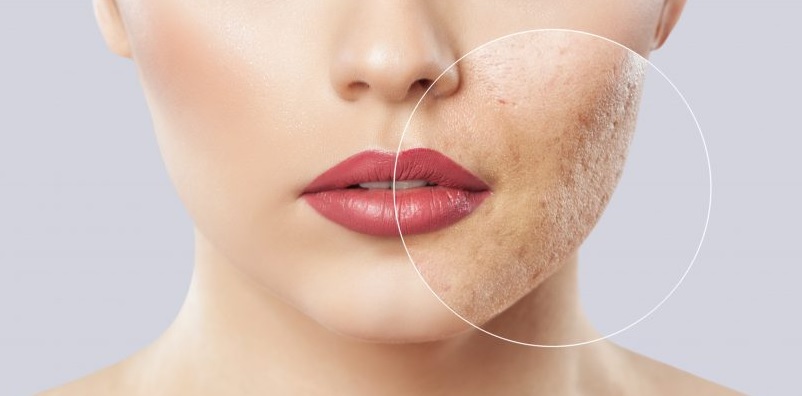According to research, diet may play an essential role in skin health. It is particularly true when it comes to acne. Indeed, research indicates that certain dietary patterns may contribute to acne. Nonetheless, whether drinking water affects skin health has been a topic of debate. This article examines; will drinking water helps acne or how drinking water may affect acne.
Table of Contents
How Drinking Water Help Acne?
Water is thought to help acne by promoting proper skin hydration. Dry skin can cause excessive oil production, which may contribute to acne. Studies have found that increasing water intake may help keep your skin soft and smooth. It is true, especially when combined with a moisturizer and other skincare products. Drinking a few pints of water per day allows the water to cleanse your skin.

The water unclogs any pores with dirt and dead skin cells clogging them (a cause of acne). It also keeps moisture and skin healthy, along with a thorough cleansing of your skin. One 30-day study of 49 women determined the effect of water. It shows that drinking an extra 2 liters of water daily improved skin hydration.
Another review of Marham (A Medical portal in Pakistan) shows the effect of more fluid intake. According to the review, it results in enhanced hydration of the skin’s outer layer. More water intake also decreases skin dryness and roughness.
How Water Prevents Acne in Different Ways?
Supporting Immune Function
Staying hydrated has been shown in studies to improve immune function. Supporting a healthy immune system can assist in protecting your body from infections. This may aid in preventing acne. Cutibacterium acnes (C. acnes) is a type of bacteria that plays a role in the development of acne.
According to research, it may also play an essential role in the health of your skin microbiome. It refers to the microorganisms that live on the skin and are involved in skin health regulation. More research is required to confirm whether drinking more water can protect against C. acne. Evidence suggests that it may help your body’s ability to fight infections. In such a way, your body supports your skin health.
Regulating Blood Sugar Level
According to research, eating foods with a low glycemic index can help to reduce acne. Glycemic index measures how much certain foods raise blood sugar levels. It also regulates hormone levels. A low-glycemic diet may also lower insulin levels, essential in blood sugar control. High insulin levels can increase oil production, which may contribute to acne.
One study found that restricting water intake for three days impaired blood sugar control in men with type 2 diabetes. Another 9-year study of 3,615 people discovered that drinking more water was linked to a lower risk of developing high blood sugar levels.
Other research indicates that dehydration can impair your body’s ability to use insulin. It leads to elevated insulin levels and excess oil production. More research is required to know whether drinking water affects blood sugar levels. Or whether those effects, in turn, affect skin health.
Promoting Natural Detoxification
Despite the prevalence of fad detox diets and supplements, your body has a highly efficient built-in detoxification system. Many organs, including the skin, play a role in removing waste and toxins from your body. Water is also necessary for proper detoxification. Because it transports nutrients throughout your body and flushes out toxins. It keeps your liver and kidneys functioning in the right way.
Water is excreted from the skin as sweat, which can help your body remove toxins and heavy metals. Water can help the skin flush out nasty toxins on the skin and body. It does so by hydrating it and allowing it to keep moisture. Water is one of the most useful methods to remove toxins from the body.
Though research is limited, this may help keep your pores from becoming clogged. Which in turn may help prevent breakouts. Moisturizing the skin allows it to maintain healthy cell rejuvenation and collagen production. This aids acne healing by reducing inflammation caused by acne pimples and acne scarring on the skin.
Being hydrated is vital for many aspects of health. Research on the relationship between water intake and acne is limited. Studies show that this fluid may help support skin health through various mechanisms. It may help to:
- Keep your skin hydrated.
- Support immune function
- Regulate blood sugar levels
- Promote natural detoxification, all of which can aid in acne treatment.
However, you should remember that there is no quick fix for acne. Acne is such a complex skin condition that it necessitates:
- Regular maintenance
- Ongoing monitoring,
- Testing and adaptation of treatment programs.
There is no single acne treatment that will cure all cases. Water can help with acne; it should not be considered a primary treatment for skin conditions. If water does not improve your acne, talk to your doctor about other options. You can go to a dermatologist to get a proper treatment plan.
FAQs
1. How much water should you drink to get rid of acne?
When you are dehydrated, your body is unable to function properly. This can result in a variety of skin issues, particularly acne breakouts. Drink a least 8-9 glasses of water daily to avoid the effects of dehydration.
2. Is Vaseline safe to use on your face?
Vaseline is a moisturizing product that is safe for most people to put on their faces. People can apply Vaseline to help with short-term skin issues, such as temporary skin dryness or irritation.
3. Is exercise beneficial to acne?
Exercise can positively and negatively affect acne patients, depending on how it is approached. An exercise is an effective tool for preventing breakouts. Physical activity helps balance blood sugar levels, essential for acne management.
You must be logged in to post a comment.